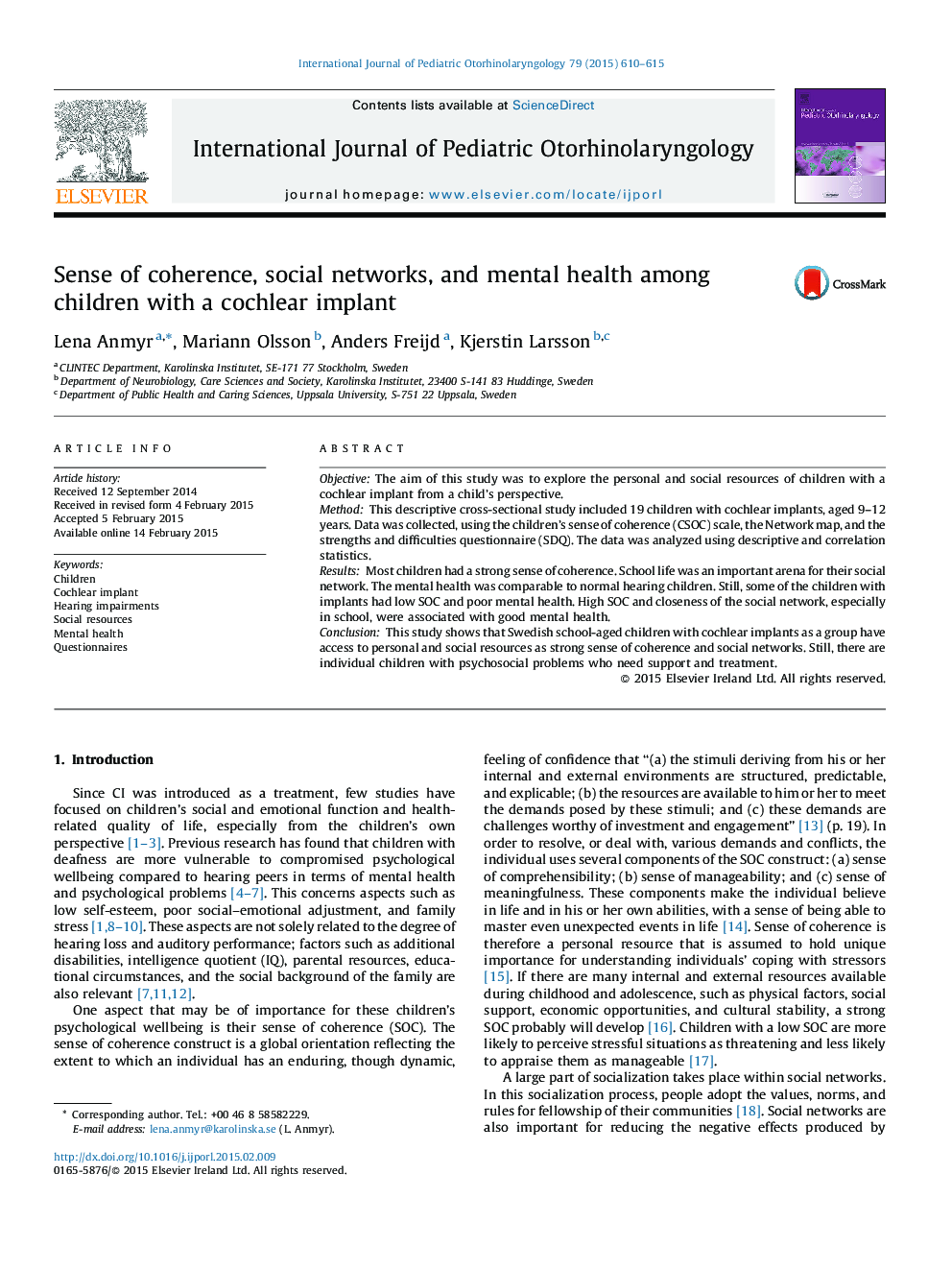| Article ID | Journal | Published Year | Pages | File Type |
|---|---|---|---|---|
| 4111719 | International Journal of Pediatric Otorhinolaryngology | 2015 | 6 Pages |
ObjectiveThe aim of this study was to explore the personal and social resources of children with a cochlear implant from a child's perspective.MethodThis descriptive cross-sectional study included 19 children with cochlear implants, aged 9–12 years. Data was collected, using the children's sense of coherence (CSOC) scale, the Network map, and the strengths and difficulties questionnaire (SDQ). The data was analyzed using descriptive and correlation statistics.ResultsMost children had a strong sense of coherence. School life was an important arena for their social network. The mental health was comparable to normal hearing children. Still, some of the children with implants had low SOC and poor mental health. High SOC and closeness of the social network, especially in school, were associated with good mental health.ConclusionThis study shows that Swedish school-aged children with cochlear implants as a group have access to personal and social resources as strong sense of coherence and social networks. Still, there are individual children with psychosocial problems who need support and treatment.
